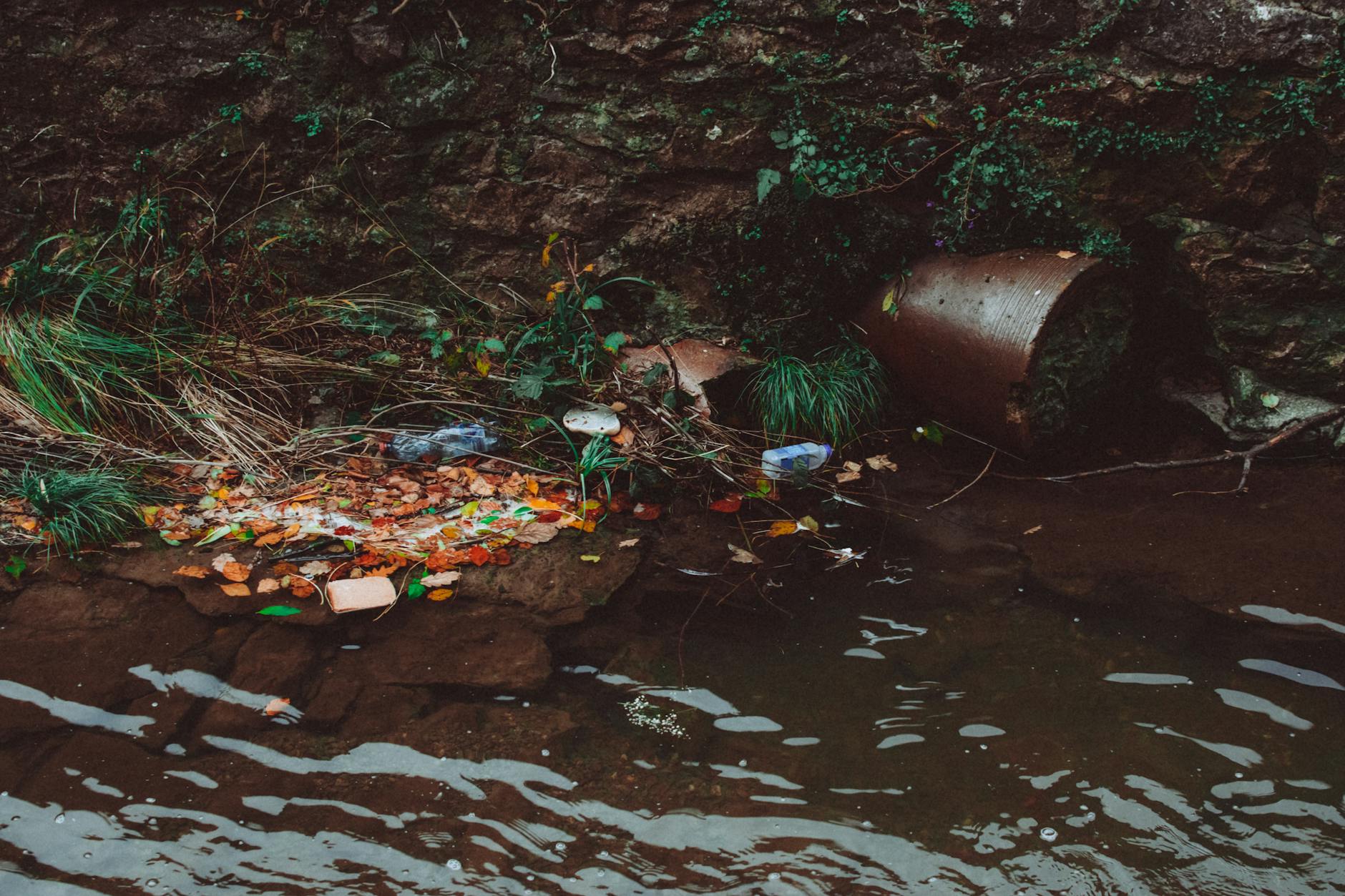How to Experience Australia’s Marine Wonders Responsibly

Exploring Marine Wonders
Delving into the marine wonders of our world, we encounter some fascinating destinations, including those highlighted on south america tours and cuba travel. While these locations promise adventure, it's imperative for enthusiastic travelers to consider the ecological ramifications, given our responsibilities as stewards of these environments.
Researchers, much like those at the Melbourne Aquarium, emphasize the importance of understanding the biodiversity of these marine hot spots. By uncovering the intricate web of life beneath the waves, we can appreciate the delicate balance that sustains both local and global ecosystems. Melbourne, a hub for ecological innovation, draws parallels to comprehensive studies on marine ecosystems conducted by Melbourne University. Such institutions work closely to promote awareness around preserving underwater habitats.
The Royal Botanic Gardens Victoria takes a proactive stance in advocating for antarctic tours that support the conservation of marine environments. This initiative ties into broader efforts to ensure travellers are equipped with knowledge about sustainable practices that safeguard the natural allure of their destinations. Promoting conservation awareness among travelers not only aids in preserving these spectacular habitats but encourages a lifestyle of environmental mindfulness. As we explore these marine wonders, the involvement in and support of these conservation strategies can drive initiatives for a sustainable future.
Environmental Impact of Tourism
Consequences on Marine Life
When considering the ecological footprint of tourism, its impact on marine life is significant. Tourists flocking for south america holidays and antarctica cruises often unknowingly contribute to detrimental effects on local ecosystems. Increased boat traffic leads to water pollution, disturbing the delicate balance essential for marine species' survival. This is particularly concerning in places like the Antarctic, where unique wildlife depends on pristine waters.
In our underwater world, motorboats and noise pollution can disrupt behavioural patterns in marine animals. For example, dolphins may abandon their usual feeding grounds, and whales might change their migratory paths to evade incessant disturbances. In densely visited areas, like those explored by cruises, the presence of large vessels can also cause physical harm to fragile coral beds and disrupt habitats.
Coral Damage and Restoration
Coral reefs face their own set of challenges due to tourism. Anchor damage, snorkelers stepping on corals, and accidental boat collisions all contribute to the degradation of these vital marine habitats. The Melbourne Aquarium, with its focus on coral restoration, offers insights into the complexity of reef ecosystems and efforts underway to mitigate tourist-induced damage.
Restoration projects aim to rehabilitate coral health through initiatives such as coral gardening and fostering resilience against climate change. These projects often rely on cutting-edge research from institutions like Melbourne University. By participating in educational tours or contributing to conservation initiatives, travellers can play a role in preserving these invaluable underwater gardens.
Educating Travelers on Conservation
Raising awareness among tourists is crucial. Educative tours that spotlight the significance of ecosystems highlight conservation strategies. Interactive sessions, akin to those at the Royal Botanic Gardens Victoria, encourage visitors to adopt sustainable practices. By fostering a deeper understanding, travellers can learn the importance of protecting marine life.
Sustainable Travel Practices
Choosing Eco-friendly Tours
When considering sustainable travel, opting for eco-friendly tours is vital. It's essential to look for tours that emphasize environmental responsibility, like Galapagos tours, which integrate conservation initiatives. These tours often collaborate with local communities, ensuring that the ecological impact is minimal while offering educational insight into preserving marine biodiversity in richly diverse areas.
Reducing Footprint in Marine Areas
Minimizing your environmental footprint when visiting marine areas requires mindful practices. Utilizing reusable containers, avoiding single-use plastics, and selecting eco-conscious accommodations are some of the simple yet effective strategies. Additionally, supporting conservation work akin to that seen at Melbourne University’s research facilities can be impactful. Such an approach not only aids in protecting the environment but also enhances the travel experience through deeper engagement with ecological conservation.
Supporting Marine Conservation Efforts
Supporting marine conservation can be accomplished by choosing tours and cruises that actively contribute to ecological preservation. Consider joining a Galapagos cruise that partners with conservation projects, ensuring that a portion of your travel expenses directly benefits the protection of marine habitats. Such initiatives are parallel to those in Melbourne’s Aquarium, focusing on educating the public about marine life protection. By participating in these responsible travel choices, you contribute to sustaining the spectacular marine world for generations to come.
Engaging with Local Communities
Importance of Indigenous Knowledge
Understanding the role of indigenous knowledge in ecological conservation is crucial for fostering sustainable travel practices. Indigenous communities have ancestrally accumulated invaluable insights on biodiversity and land management that can aid in the preservation of ecosystems across central america travel. For instance, when travelling through regions like the Amazon, working with local guides can provide access to traditional knowledge about native species and habitats. This collaboration enhances both the quality of travel experiences and the conservation of natural resources.
Community-led Conservation Projects
Community-led conservation projects have shown promising impacts in preserving biodiversity while also supporting local economies. These initiatives empower residents to manage natural resources sustainably and promote environmental education. In countries across South America, projects run by local communities often focus on habitat restoration, wildlife protection, and the promotion of eco-tourism. Travellers who engage with these projects not only broaden their understanding of the local ecology but also contribute to meaningful conservation efforts.
Cooperative Eco-tourism Initiatives
Cooperative eco-tourism initiatives serve as successful models of sustainable travel. They involve partnerships between travellers and local businesses to ensure that tourism revenues benefit the host communities directly. By participating in these initiatives, visitors can enjoy authentic experiences while supporting economic development and environmental stewardship. Such practices are essential for responsible travellers seeking to minimise their impact, especially in ecologically sensitive areas of south america travel.
Engaging with local communities through these strategies enriches the travel experience and promotes biodiversity conservation, vital for both current and future generations.
Common Mistakes
Misunderstanding Responsible Tourism
At the core of responsible tourism is an understanding that our actions directly impact the delicate balance of marine ecosystems. Yet, common misconceptions persist, especially regarding what it truly means to engage responsibly with local environments. While some visitors might interpret responsible tourism as merely adhering to visible guidelines, it fundamentally calls for deeper accountability that goes beyond surface-level compliance. Crucially, this involves educating oneself about the unique ecological characteristics of places like the Melbourne Aquarium, which hosts educational programs and initiatives that highlight the importance of preserving marine biodiversity.
Ignoring Guidelines for Marine Interaction
A prevalent error is the neglect of established guidelines intended to protect marine life during interactions. These guidelines are not mere suggestions but critical measures designed to prevent disturbances to the habitat of threatened species. For instance, in research activities at facilities like Melbourne University, protocols emphasise minimal invasive interaction. This approach mitigates stress on the organisms, ensuring their natural behaviors remain undisturbed. Ignoring such practices not only compromises marine safety but also diminishes the quality of interactions, detracting from the immersive experience nature offers.
Overlooking Long-term Ecological Effects
Lastly, perhaps one of the most significant blunders is underestimating the long-term ecological consequences of tourism-related activities. It’s imperative to recognise that each action taken today reverberates through time, potentially escalating the issues tomorrow. With conservation initiatives such as those at the Royal Botanic Gardens Victoria, emphasis is placed on nurturing sustainable practices that consider the broader ecological persona. Informed decisions foster positive impacts, like supporting the resilience of marine populations. By fully appreciating the extensive implications of tourism, Australians, and indeed all global citizens, can be empowered to pivot their practices towards truly sustainable interactions with the environment.


